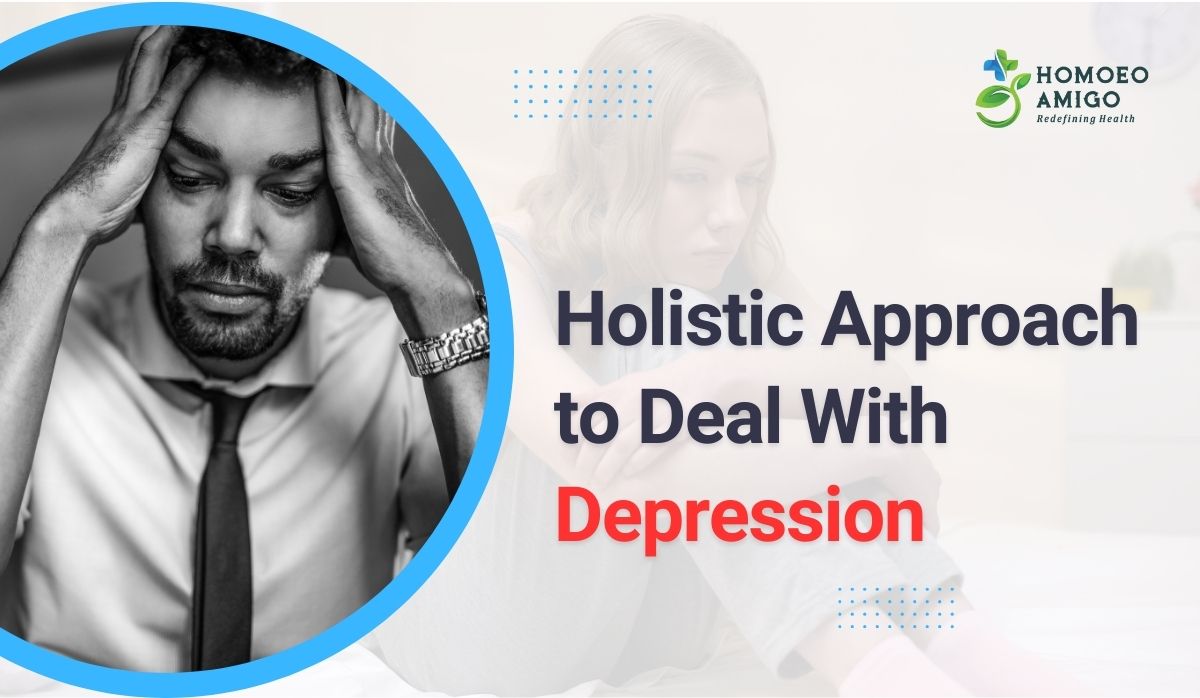In our busy lives, people often forget about their mental health. However, it’s important to recognize that mental health issue affect a significant portion of the global population. According to a study, over 300 million people worldwide, equivalent to 4.3% of the world’s population, struggle with depression. Transitioning to a closer perspective, in India, the National Mental Health Survey uncovered that nearly 15% of Indian adults require active intervention for mental health issues, with one in 20 individuals grappling with depression.
Now, looking for solutions, homeopathy comes in. It’s a holistic approach to tackle mental and emotional issues like depression without side effects. Stress, anxiety, and depression are common, affecting your well-being and those around you. Homeopathy helps by addressing the root cause of depression and giving relief from feelings of sadness and hopelessness.
Who Faces a Heightened Risk of Depression?
- People with low self-esteem and self-critical tendencies face an elevated risk.
- People exhibiting negative thinking are susceptible.
- Long-term stress puts individuals at risk.
- Women face a higher risk compared to men.
- Those with a history of mental trauma, such as the death of a loved one or abuse, are vulnerable.
- Individuals experiencing financial problems, difficult relationships, workplace issues, or divorce are at risk.
- Those with serious chronic illnesses like cardiovascular disease, cancer, or chronic pain are vulnerable.
- Individuals abusing recreational drugs and alcohol are at risk.
- People taking medications like sleeping pills, certain high blood pressure medications, and corticosteroids are at risk.
Causes of Depression
- Genetics: Individuals with a family history of depression are at risk. Research is ongoing to identify the specific genes involved.
- Changes in Brain Chemicals (Neurotransmitters): Imbalances in neurotransmitters such as serotonin, dopamine, and norepinephrine, which regulate feelings, moods, and emotions, may contribute to depression.
- Hormonal Changes: Variations in hormone levels during pregnancy, postpartum, menopause, and thyroid dysfunction can trigger depression.
- Structural Brain Changes: Alterations in brain structure, including reduced activity in the frontal lobe, may be associated with depression.
- Coexisting Disorders: Conditions like anxiety disorders, post-traumatic stress disorder (PTSD), and bipolar disorder can increase the risk of depression.
- Chronic Illness: Individuals with chronic diseases, chronic pain, or long-term health conditions are more susceptible to developing depression.
Holistic Approach to Depression
Homeopathy, one of the most popular holistic approaches to medicine, bases its remedy selection on the theory of individualization and symptom similarity, employing a holistic approach. It is believed that complete health restoration can only be achieved by alleviating all signs and symptoms experienced by the patient. The goal of homeopathy is not solely to treat depression but also to address its underlying cause and individual susceptibility. Therapeutic medication for depression encompasses various remedies that can be chosen based on the cause, condition, sensation, and modalities of the complaints.


0 Comments